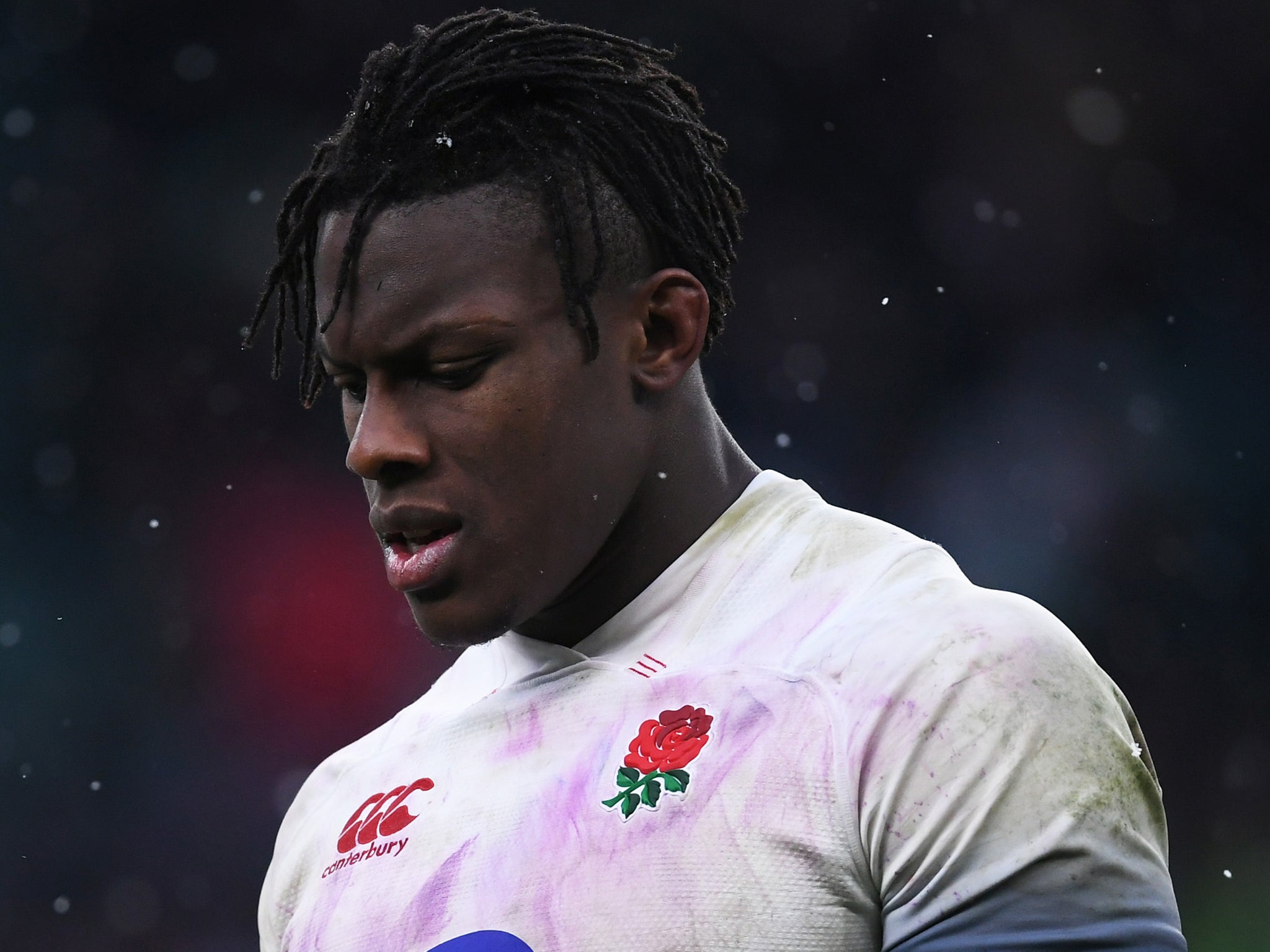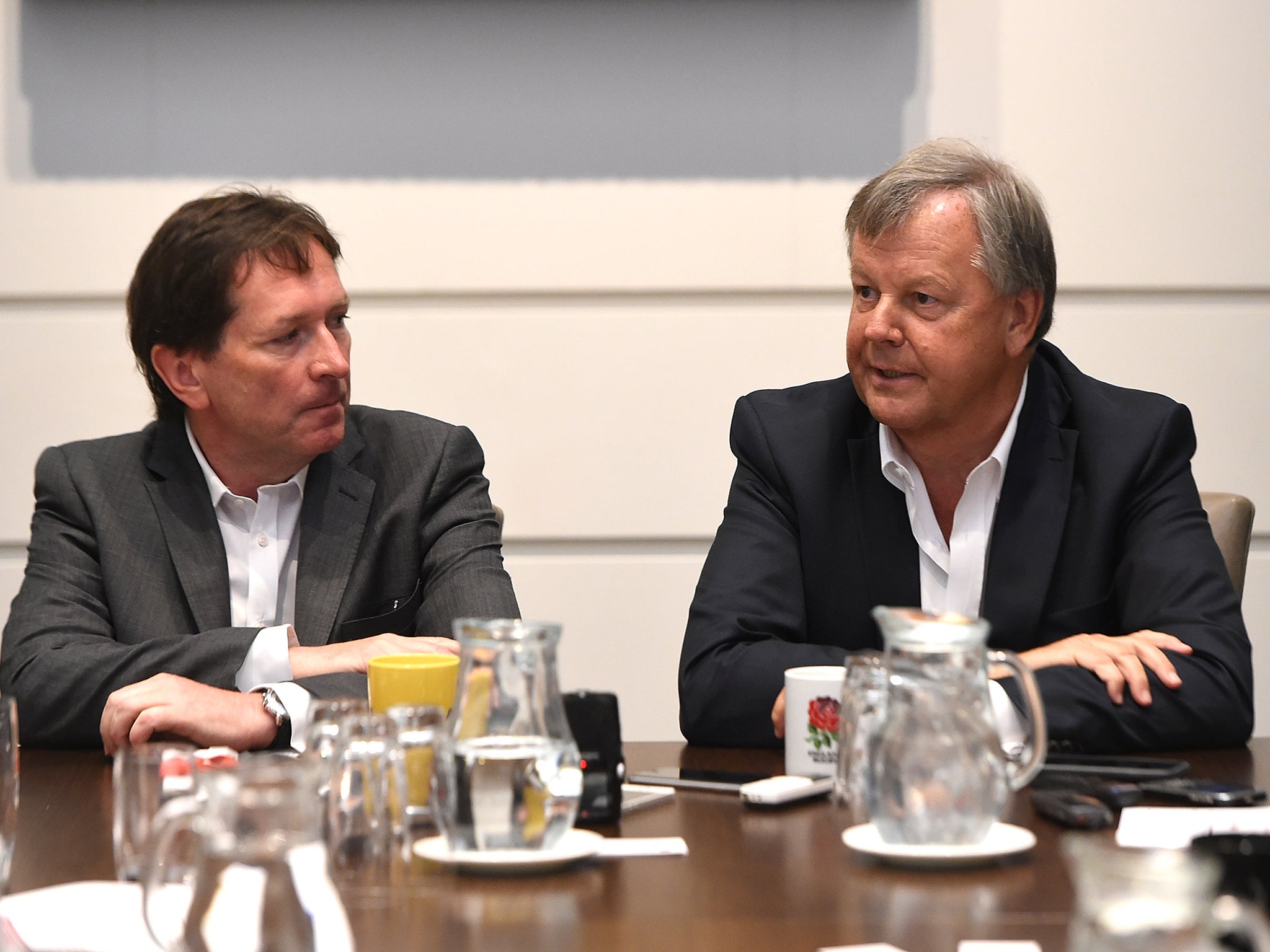As Premiership players return to clubs, who will take account for an English game spiralling into an unholy mess?
Irish, Scottish and Welsh players are given a well-earned rest, but England internationals continue to be flogged to within an inch of their lives by a dangerously unsustainable fixture schedule

They were at it again this week. Bickering. Finger pointing. Blaming.
“You started it.”
“No, you started it.”
English rugby’s bosses, seemingly desperate to elevate the game onto a higher moral plane than other professional sports while standing idly by as players are flogged to within an inch of their lives by a dangerously unsustainable fixture schedule, were back doing what they do best; attempting to shift the blame elsewhere.
England’s disastrous Six Nations campaign? Not the clubs fault. Not the Lions fault. Not the Rugby Football Union’s fault. Not Eddie Jones's fault.
“If you ask me what the fundamental reason is, having watched virtually every single England game, it’s that, at the moment, we’re not good enough,” explained Saracens’ millionaire owner Nigel Wray, in the most simplistic assessment possible of a highly complex problem.
“The number of club games hasn’t gone up, the number of international games has soared,” he continued.
“The pressure’s only coming from one direction. I don’t think another two weeks, stuck in some hotel in the middle of nowhere, is going to do them any good at all personally, though obviously we need a better solution than we’ve got at the moment.”
It’s their fault. They started it.
The noises from within the RFU expressed exasperation at the amount of rugby the top players play, completely ignoring Jones’s modus operandi of pushing his players harder in training than any Red Rose coach in history, while those close to the Lions balked at suggestions last year’s 10-match tour of New Zealand might have played a part in England’s players looking dead on their feet in recent weeks.
One former Lions head of communications tweeted indignantly on Tuesday: “So Lions tour blamed for England poor form…poppycock.. Ireland and Wales seemed unaffected probably cos [sic] introduced fresh young talent…besides if blazers in club land gave Lions tour better preparation players would not be so affected!”
It's their fault. They started it. You’re not coming to my party!

It is, of course, an unholy mess. While talk of player welfare still echoes along the corridors of power, there is almost nothing that can be done while the current structure exists in England. Serious, intelligent thought is required. Ground needs giving. Save the mudslinging for the playground, boys.
Ireland’s centrally contracted players, fresh from winning the Grand Slam, have been almost universally stood down for this weekend’s round of Pro14 fixtures while Scarlets head coach Wayne Pivac has told Hadleigh Parkes, Gareth Davies and Rob Evans to take the weekend off after starting for Wales against France. With Leigh Halfpenny also rested under the terms of the National Dual Contract, Scarlets players will go into next Friday night’s European Champions Cup quarter-final fit, fresh and rested.
As for England’s players, 10 of those who started against Ireland start for their clubs this weekend, while Owen Farrell, George Kruis, Anthony Watson and Dylan Hartley are all unavailable through injury and Mako Vunipola is on the bench for Saracens’ Aviva Premiership clash with Harlequins at the London Stadium where Richard Wigglesworth and Maro Itoje both start.
Saracens, England’s last team standing in Europe, will take on Leinster next Sunday tired, jaded and bruised. My money? Leinster by 15.
It really is untenable. England’s players, contracted and paid the bulk of their salaries by their clubs, remain hopelessly conflicted by serving two masters.

Everyone knows they play too much rugby and their bodies suffer as a result – whatever the long-overdue RFU Injury Surveillance Project for 2016/17 may purport to tell us when its results are finally delivered on Monday – but no-one is willing to give an inch. Even the tiniest of concessions on player welfare are tortuously earned and presented in an entirely disproportionate light.
If anything, the land grab continues. Wray is right in saying there are more internationals played than ever before but earlier this month it was seen as reason for players to celebrate when their very real threat of strike action forced Premier Rugby to rethink their absurd and unilateral bid to extend the season by a month.
It was a Pyrrhic victory for the players. The toll they pay is already too high. The system needs changing and a radical reduction in matches is required.
As professionalism advances and the stress on players continues to grow, only a drastic reduction in games for the top stars can avert a car crash of seismic proportions for the sport
According to an excellent recent piece of research by player agency Esportif Intelligence, England’s players had played on average almost 1,100 minutes (13.75 matches) of club rugby each this season before the start of the Six Nations.
Ireland’s? 700 minutes (8.75 matches).
Wales’s? 850 minutes (10.625 matches).
Scotland’s? 660 minutes (8.25 matches).
But even accounting for their grotesquely heavier workload than their Celtic counterparts before the tournament, it is still England’s players who are being called back to the grindstone first.
On the back of a Lions year, the effect is plain to see as England’s performances flatline, English clubs flop in Europe while the Aviva Premiership stagnates.
Radical thinking is required and required soon or Ireland, Wales (whose National Dual Contract scheme is only just beginning to bear fruit) and Scotland will continue to punch well above their collective weights when it comes to player numbers and commercial clout.

In 1995 the RFU called a moratorium on professionalism. The "old farts" at Twickenham dithered as their amateur game burned. The clubs contracted the players and England have suffered since. As professionalism advances and the stress on players continues to grow, only a drastic reduction in games for the top stars can avert a car crash of seismic proportions for the sport.
The signs are not good. This week Ian Ritchie, the man who presided over England’s worst ever World Cup campaign in 2015 as RFU chief executive but was forgiven as the union bathed in cash, was appointed chairman of Premiership Rugby. A lovely bloke and decent administrator but the man to deliver radical change in a sport crying out for alternative thinking? No chance.
The blame game will go on and the players will continue to suffer. But who will be to blame when the wheels really do come off?
Join our commenting forum
Join thought-provoking conversations, follow other Independent readers and see their replies
0Comments